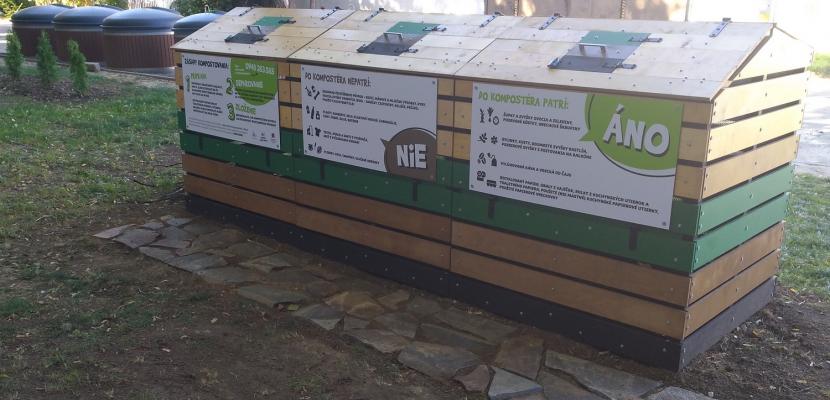
Community Composting in the city of Nitra

About this good practice
Community Composting in the City of Nitra, Slovakia, has been launched in 2018 as a small-scale community project for 50 households, whose final product – compost – serves for involved households and for treatment of public areas. Project has been developed by the civic association “Composting Community”. An important goal of the pilot project was to get the local community familiar with the issue of composting, mainly in terms of its benefits and perception (e.g. prejudices about odour, rodents, flies, etc.). Each household obtained a manual for bio-waste sorting, a bio-waste bucket, and a key from the composter, as it is lockable.
The bio-waste is stored and decomposed in one of the three chambers. The composter has been filled twice so far – compost has been offered twice to the participating households (free of charge). In the meantime, a second chamber is available for bio-waste disposal. The project runs since October 2018, e.g. more than three years. At present, it can be stated that the project not only met expectations, but its idea is successfully expanding. The members of the civic association cooperate with experts, organize lectures, provide laboratory control of compost quality, and contribute to making composting an integral part of community life. The idea of community composting is currently significantly supported by the municipal authorities in Nitra and promoted by new website and social media.
Resources needed
The first grant provided by Nitra Community Foundation was 4,000 EUR (3,000 for composter and 1,000 for promotion and composting accessories). There are no operation costs since it is done voluntarily. Another grant (1,000 EUR) has been obtained in 2020 to organize lectures and issue of guidelines.
Evidence of success
This way of bio-waste management is beneficial for communities in cities and municipalities from several aspects. It reduces the amount of landfilled waste and hence the cost of the city for its transport and disposal on landfill. Since the biological component represents on average 50% of weight of municipal waste, a positive result is a reduction of the total amount of waste in containers. Evidence of success is mainly the ever-growing number of composters in the city.
Potential for learning or transfer
Thanks to low costs, the potential for the implementation of such projects is very high. Other communities in Nitra have been inspired by the pilot project, so the transfer has already taken place. New project for 60 households has been developed free of charge by a civic association. In 2020, the cooperation with Nitra city had started and in 2021 the new sites for composters have been identified. The city contracted 40 new community composters that are currently being deployed. The city is preparing also lectures on composting as a part of informal environmental education.
However, it should be stressed that this way of bio-waste management requires some effort, such as keeping strictly the composition of the input biological material, digging, mixing, aeration and bio-waste chopping for faster decomposition. The permanent challenge is to ensure consistent education for residents in the field of bio-waste separation, effective composting options for people and care for composters.
Further information
Website
Good practice owner
You can contact the good practice owner below for more detailed information.
Informal group of three citizens in the city of Nitra, Slovakia
